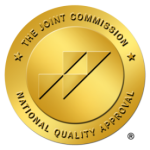Treatment Center for PTSD in Mesa, AZ
Send us a message
*No Medicaid/AHCCCS
Your Resource for PTSD Treatment
At Revive Recovery Centers in Mesa, AZ, we are dedicated to providing compassionate and comprehensive treatment for individuals struggling with Post-Traumatic Stress Disorder (PTSD). Our holistic approach integrates evidence-based therapies, personalized care plans, and a supportive environment to help clients reclaim their lives from the grips of trauma. PTSD doesn’t have to control every aspect of your life, help is available with Revive Recovery.
Speak with an Admissions Specialist!
Why Choose Revive Recovery Centers for PTSD Treatment?
Expert Team of Medical Professionals
Evidence-Based Therapies
We utilize evidence-based therapies that are proven to be effective in treating PTSD. Our approach to treatment includes Cognitive Behavioral Therapy (CBT), Eye Movement Desensitization and Reprocessing (EMDR), and other scientifically supported methods and modalities to help you manage and reduce your PTSD symptoms.
Partial Hospitalization Program (PHP)
Our Partial Hospitalization Program (PHP) offers intensive, structured treatment for individuals who need a higher level of care. This program provides daily therapeutic support while allowing clients to return home in the evenings, ensuring a balanced approach to recovery that integrates with daily life.
Intensive Outpatient Program
Our Intensive Outpatient Program (IOP) is designed for individuals who require ongoing support but with more flexibility. IOP allows clients to attend therapy sessions several times a week while maintaining their everyday responsibilities, providing a strong support system as they transition towards greater independence.
Safe and Supportive Environment
Revive Recovery Centers provide a safe, nurturing, and supportive environment where you can focus on your recovery without distractions. Our facilities are designed to foster a sense of community and comfort, helping you feel secure as you navigate your healing journey.
Life Skills and Continued Support
Signs of PTSD
Intrusive Thoughts
Recurring, involuntary memories of the traumatic event, which can include distressing dreams or flashbacks.
Avoidance
Deliberate efforts to avoid reminders of the trauma, such as avoiding places, people, or activities associated with the event.
Negative Thinking & Mood
Persistent negative thoughts about oneself or the world, feelings of hopelessness, memory problems, or feeling detached from family and friends.
Hyperarousal
Heightened state of alertness, which often results in being easily startled, feeling tense, having difficulty sleeping, or experiencing irritability and outbursts of anger.
Physical and Emotional Reactions
Physical symptoms like increased heart rate, sweating, or difficulty concentrating, along with emotional symptoms such as anxiety, depression, or overwhelming guilt or shame.
Don't Let PTSD Control Your Life - Start Treatment Today
At Revive Recovery Centers, we believe in the strength and resilience of the human spirit. If you or a loved one is struggling with PTSD, take the first step towards a healing and recovery. Reach out today, and let’s embark on this journey to wellness together.
FAQs About PTSD Treatment
What is PTSD Treatment?
Revive Recovery Centers offers various approaches to treating clients with PTSD. Each client’s case is unique and our PTSD treatment program is designed to help individuals manage and reduce symptoms, leading to a happier and healthier life. Treatment can include psychotherapy, medication, and alternative therapies.
What types of therapy are most effective for people with PTSD?
Effective therapies for PTSD include Cognitive Behavioral Therapy (CBT), particularly Trauma-Focused CBT, Eye Movement Desensitization and Reprocessing (EMDR), Prolonged Exposure Therapy, and stress inoculation training.
Can medication help with PTSD?
Yes, medication can help with PTSD. SSRIs (Selective Serotonin Reuptake Inhibitors) and other antidepressants can help manage symptoms of PTSD. It is important to note that medications should be used in conjunction with therapy in order to achieve the best outcome.
How long does PTSD treatment take?
The duration of PTSD treatment varies depending on the individual and the severity of their symptoms. Some people may see significant improvement within a few months, while others may require longer-term treatment.
Is a full recovery from PTSD possible?
Many individuals see a significant reduction in symptoms with appropriate treatment and regain a high quality of life over time. While some may experience residual symptoms, ongoing therapy and support can help manage these effectively.
What should I expect during PTSD therapy sessions?
During therapy sessions, you can expect to discuss your experiences that lead to your PTSD diagnosis, different symptoms you are experiencing, and expectations for therapy. Your support team will then create a unique therapy program to help achieve those goals while teaching different coping mechanisms to help manage residual symptoms effectively.
Can family and friends be involved in PTSD treatment?
Yes, we encourage family and community support as it can be extremely beneficial for the person in recovery. Many therapist encourage the participation of loved ones to provide additional support and understanding.


